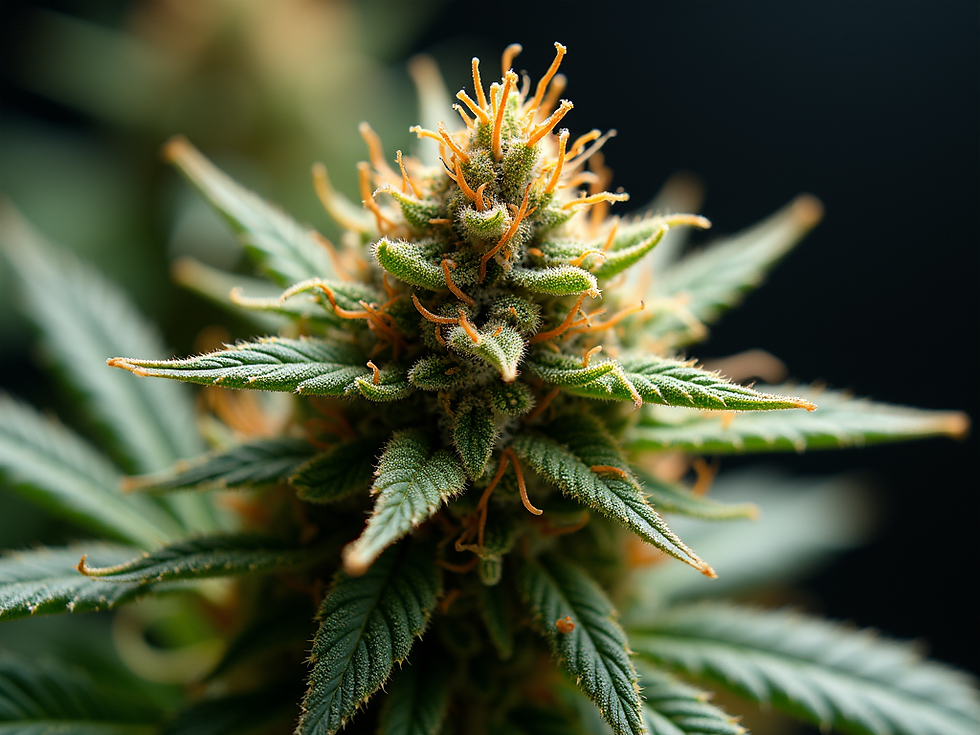“THCA: The Quiet Cannabinoid That’s Disrupting Legal Markets”
- Sebastian Magallanes Lagos
- Sep 26, 2025
- 2 min read
Introduction: A New Player in the Spotlight
For years, cannabis conversations revolved around THC and CBD. But now, a lesser-known cannabinoid — THCA (tetrahydrocannabinolic acid) — is rapidly climbing the ranks in legal markets. From dispensary shelves to online marketplaces, consumers are discovering that THCA offers a legal, accessible, and powerful alternative to traditional THC products. The shift is reshaping not only consumer demand but also the strategies of cannabis businesses nationwide.
1. What Makes THCA Different?
At its core, THCA is the raw, unheated precursor to THC. In its natural form, it’s non-psychoactive. But once exposed to heat — whether through smoking, vaping, or baking — it converts into Delta-9 THC, the compound that delivers the high cannabis is famous for.
The kicker? In many jurisdictions, THCA isn’t regulated the same way as THC. That means consumers can legally buy THCA flower or concentrates that, once used, offer the same potency and effects as traditional cannabis. It’s a loophole that’s catching fire.

2. Legal Loopholes Driving Demand
The U.S. cannabis market is fragmented, with laws varying state by state. But under the 2018 Farm Bill, hemp-derived products containing less than 0.3% Delta-9 THC are federally legal. Because THCA itself isn’t psychoactive, it often qualifies under this threshold.
This means brands can legally ship THCA products in states where traditional cannabis is restricted. For consumers, it’s a golden ticket: legal access to the same experience as marijuana, without the dispensary red tape.
3. Consumer Appeal: Potency, Price, and Access
Consumers aren’t just chasing legality — they’re chasing value and effect. Here’s why THCA products are winning hearts and wallets:
Potency: Once activated, THCA delivers the same high as top-shelf THC flower.
Price: THCA flower often undercuts dispensary prices because it avoids the heavy taxation tied to legal cannabis.
Access: In regions without recreational legalization, THCA fills the void by giving customers an option that’s federally compliant.
For many, it’s the perfect storm: strong effects, lower cost, and easy availability.
4. Industry Impact: Shaking Up the Market
THCA isn’t just a consumer fad — it’s shaking up how businesses operate. Legacy cannabis brands are paying attention as hemp-derived THCA rivals dispensary-grade flower. Online hemp retailers are scaling rapidly, capitalizing on the demand.
This shift is also pressuring lawmakers and regulators, who are scrambling to close loopholes while businesses push to expand them. The result? THCA is now a flashpoint in the ongoing battle between federal hemp laws and state cannabis restrictions.
5. The Road Ahead: Fad or Future?
Some argue that THCA’s rise is temporary — a loophole destined to be closed. But others see it as the future of legal cannabis commerce, especially as consumers continue to value price, potency, and convenience. Until regulators align, THCA will remain a disruptive force, carving its own lane in the cannabis marketplace.
Conclusion: A Market in Transition
THCA isn’t just another cannabinoid — it’s a market disruptor. By bridging the gap between hemp legality and cannabis experience, it’s offering consumers the best of both worlds. For businesses, it’s both an opportunity and a challenge. And for regulators, it’s a wake-up call.
One thing is clear: THCA isn’t just trending — it’s taking over.



